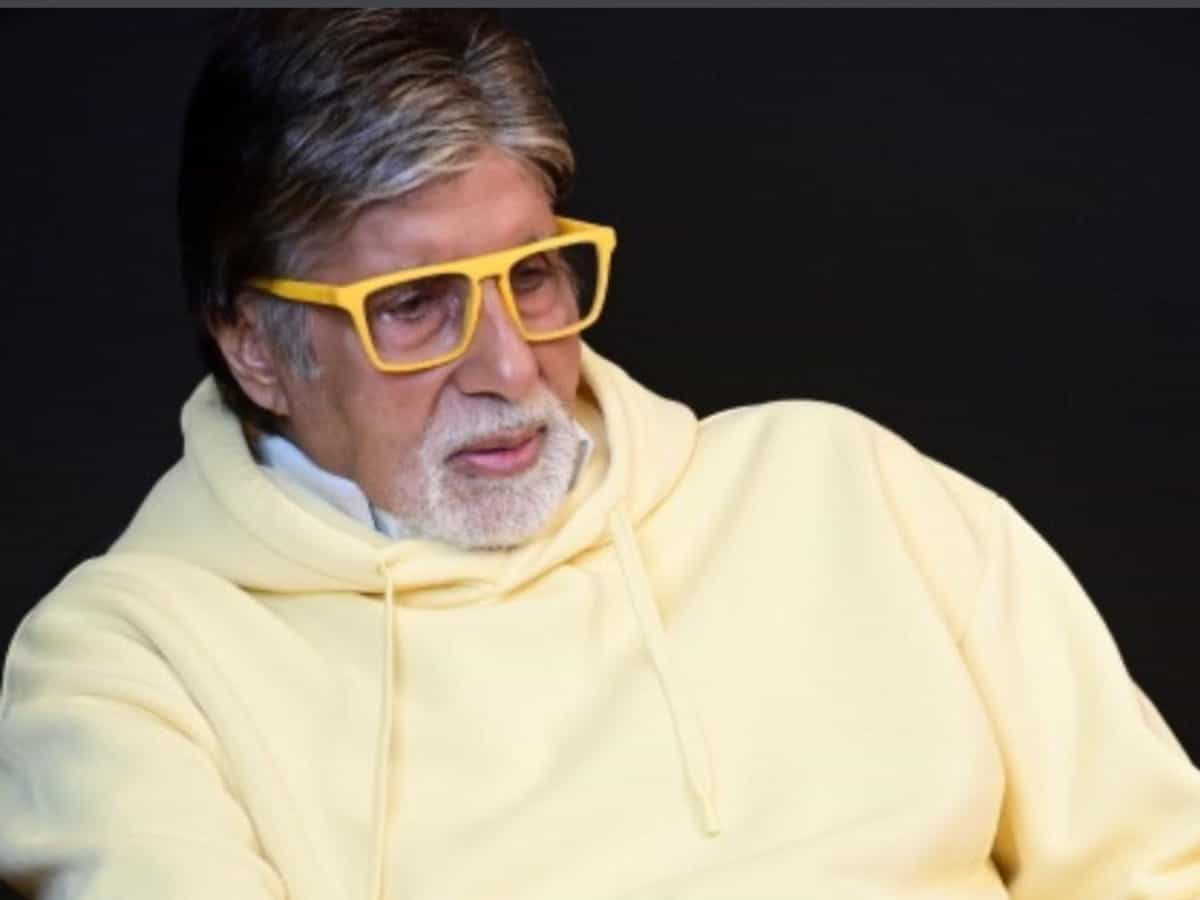
New Delhi: His trademark baritone was first heard in Mrinal Sen’s ‘Bhuvan Shome’ in July 1969, months before he debuted onscreen with ‘Saat Hindustani’. Going on to become a megastar, Amitabh Bachchan also lent his voice as a narrator in Satyajit Ray’s ‘Shatranj Ki Khiladi’, Aamir Khan’s ‘Lagaan’, ‘Parineeta’, ‘Ra. One’ and many others, but in several of his own roles, he had to do without it at times.
Manoj Kumar described his voice as “a mellow whisper, sounding like the murmurs of a thundery cloud” after meeting him in 1967 when Amitabh, who turns 82 on this day (October 11), arrived in Bombay to try his luck in films. However, one of the first significant roles he got — in the desert vendetta ‘Reshma aur Shera’ (1971) had him playing a mute.
The idea was, as per director and producer Sunil Dutt, who gave him a break, to evoke greater sympathy for him. However, Nargis – whom her friend, Prime Minister Indira Gandhi, had tasked with paving the way for Amitabh’s film career, was not happy with the decision.
Amitabh, who kept silent too at the decision, did leave his mark as the hapless Chhotu in the film. However, while his other films did not restrict his voice, they left key scenes to his expressions and actions.
Let’s see some other examples from his golden days.
‘Anand’ (1971): In a secondary role as a cynical doctor whose faith in humanity is restored by the terminally ill but always optimistic Rajesh Khanna, Amitabh displays his intensity as he enters the house as the hero is on the balcony, singing “Kahin Door Jab Din Dhal Jaye”, climbs up the stairs, switches on the light, and then stands, arms folded, in the lengthening shadows.
‘Zanjeer’ (1973): This was the film that set Amitabh on the path to stardom as the “angry young man”, displayed amply in the crisp dialogues with the other actors. However, there is one scene where he, as the intense Inspector Vijay Khanna, succumbs silently to romance as he and street performer Mala (Jaya Bhaduri) stand at his house’s window and shoot coy glances at each other as they see a streetside pair of buskers sing “Deewane hai, deewanon ko na ghar chahiye”.
‘Deewar’ (1975): In a standout film filled with unforgettable dialogues, Amitabh shows his mettle when he is invited by his criminal mentor, Davar (Iftehar in a rare negative role) to succeed him, and slowly stands, walks around the table, lowers himself into the chair, and plonks his feet on the table.
‘Sholay’ (1975): The scene where Amitabh plays “matchmaker” for his friend Veeru (Dharmendra) is a cult classic, but there are two more where he makes his presence felt silently. Firstly, he tells Basanti (Hema Malini) to be quiet as he steers her towards behind the deity’s statue where Veeru is trying to play god, literally. Then, there is one when he, playing a mournful strain on his mouth organ, gazes at Jaya Bhaduri’s room and her when she opens the window.
‘Don’ (1978): As Helen seeks to delay Amitabh, the Don, with the seductive “Yeh mera dil yaar ka diwana” as he dons a green-and-white check blazer, his arrogance, as well as an imperious interest, is palpable in his silence.
‘Kaala Patthar’ (1979): Amitabh confronts the knife-wielding ruffian by gripping the blade with his expression reflecting the pain and anger as his blood flows. Then, when the bombastic Shatrughan Sinha stops him from lighting his bidi by snatching away the flame, our hero quietly responds by flicking away the bidi from his mouth to light his own, stubbing Sinha’s bidi out under his foot, and walking away.
‘Yaarana’ (1981): Apart from when country bumpkin Kishan (Amitabh) is flabbergasted at the “transformation” of his friend Bishan (Amjad Khan, in a rare non-antagonistic role) after an elevator ride, the makeover scene is a riot as he takes on his etiquette instructor by daring him to slap both hands on the knees, touching his left ear with his right hand and the nose with the left – and rapidly repeating all the steps.
‘Kaalia’ (1981): After teaching Parveen Babi how to wear a sari by draping it on himself, Amitabh brings her home and his sister-in-law (Asha Parekh) seeks to test her cooking skills. As she stays in the kitchen to prevent cheating, Amitabh tries to help his girlfriend with mimed instructions on how to make an omelette but what happens is not “eggzactly” positive.
‘Satte Pe Satta’ (1982): Amitabh plays a double role in this rollicking rural romance and his evil persona radiates his menace by the way he walks out of jail, takes his first breath of freedom, and slowly ambles to where his crime boss is waiting.
